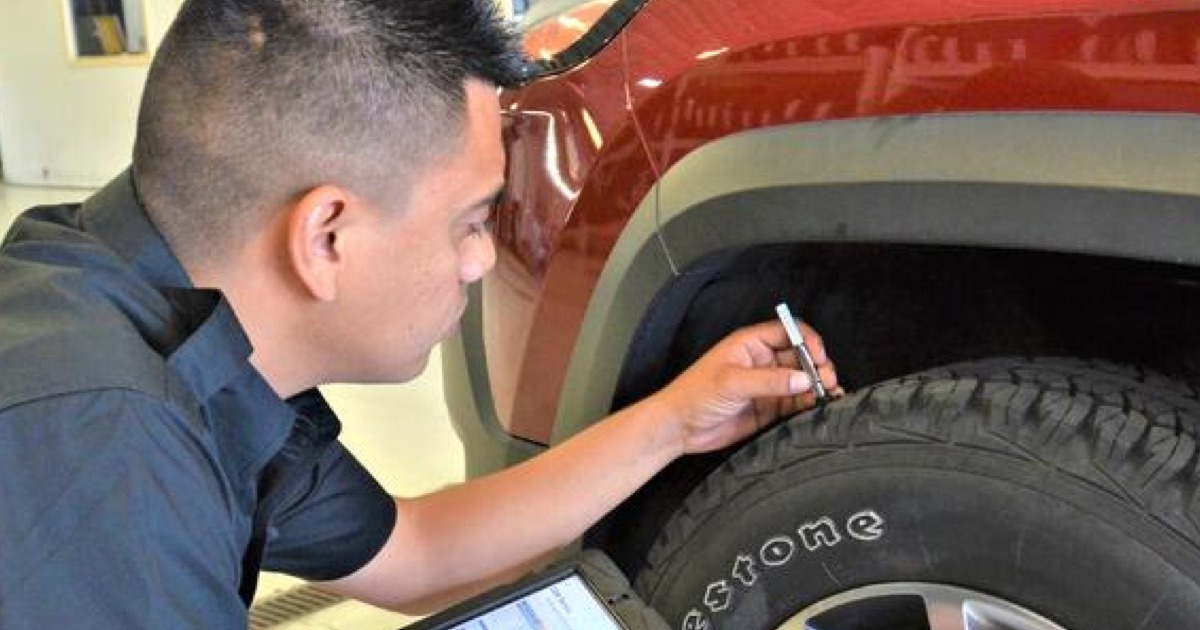Today’s students are tech savvy. They know their ways around any gadget you put in front of them. In fact, many parents fear their kids are spending too much time on devices after school and not enough time in school to prepare them for future employment. Automotive technology programs allow students to use and further develop their technology skills while working and learning in a fun and engaging way. This means automotive technology programs help bridge the gap between home and school while providing students with valuable STEM educations.
STEM, the acronym representing science, technology, engineering, and mathematics education, has found growing support in schools as educators work to prepare students for real-life, science-centered jobs. Automotive technology programs fulfill the key components for STEM programs with real skills and technology-based, hands-on opportunities.
Math Skills
The more connections students make to a topic, the better they are able to retain and use information. Consider the benefit of applying what students learn in school to real-life situations. Automotive technology programs build on math concepts that students learn from early ages and demonstrate their real value. Students may be able to calculate measurements and ratios on a piece of paper, but what happens when they apply those concepts to a coolant flush or refinishing a brake rotor? These practical applications help cement concepts so students can more effectively use them to solve real problems.
Scientific Method
Problem solving is a key component of STEM education, and automotive technology courses challenge students to hone this skill. Students identify questions to be answered and test hypotheses using the scientific method. Through this type of hands-on scientific inquiry, students learn important scientific concepts. For example, a Tahoma High School automotive technology instructor notes that his students learn about chemical reactions through demonstrations and hands-on activities, such as observing the reaction when brake fluid spills on car paint or the effect an unplugged ignition coil has on fuel trim.
Communication Skills
Although writing and speaking are not explicitly part of STEM, they are indispensable to an effective STEM education. Without the ability to clearly communicate what they have discovered during diagnosis of a problem via scientific inquiry, the customer is not likely to understand what is needed to repair the vehicle. While some students may tune out of lessons they don’t see as relevant and resist writing papers about topics that seem disconnected from their lives, providing a concrete reason for clear communication can create a very different outcome. Consider the value of teaching the basics of writing up a repair order in which information must be neat and concise.
Not every student shines in English class or is comfortable practicing verbal communication in this environment. However, there are few jobs that don’t require at least some level of interpersonal communication. Automotive technology programs provide students with opportunities to work and communicate with others in an environment that may be more comfortable for them. Technicians regularly communicate with other technicians, service advisors, and even customers, so strong communications skills are both needed and developed.
Automotive technology programs capitalize on students’ love of technology while teaching important concepts to build the foundation for success in the workplace. Participating in one of these programs also provides a student with the ability to work on tools, equipment, and vehicles that they are likely to encounter on the job if they choose to go into the automotive field. This creates a direct pathway to rewarding employment after high school.
CDX Learning Systems provides online materials that include interactive animations and live action video to help engage students in the learning process. If you’re interested in learning how we can help enhance your automotive technology course, contact us today.
